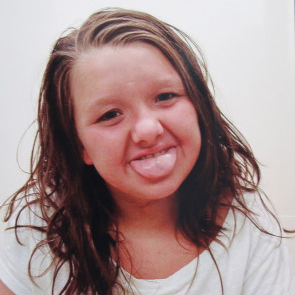WASHINGTON — The trial for a Virginia Tech student from Laurel, Maryland, who prosecutors claim was an accessory to the murder of a 13-year-old Virginia girl is set to begin March 6.

Natalie Keepers, 20, was charged with helping to plan the murder of Nicole Lovell and helping David Eisenhower, a fellow Virginia Tech student, dispose of the body. Lovell went missing in January 2016. Her body was found days later in a remote area about two hours from campus. Eisenhower, 19, of Howard County, Maryland, has been charged with first-degree murder and abduction in connection to her death.
Ahead of Keepers’ trial, defense attorneys urged a judge to not allow the confessions she made to the police to be read during the jury trial.
They claimed in court documents that Keepers suffers from mental illness and that she was coerced into writing a confession and wasn’t properly instructed on her rights.
In court records, Keepers was initially interviewed by Blacksburg police as a possible witness in the case. She at first denied knowing about what happened to Lovell, but after several hours of questioning, investigators say Keepers told them that the girl was dead, the court records state.
Keepers also told police that she helped plan the murder and dispose of the body, but denied being there for the girl’s murder, the court records state.
Prosecutors claim that Keepers was not in custody until her formal arrest, and urged the judge to not suppress the statements. Also, prosecutors claimed that because she was not in custody, investigators didn’t need to read her the Miranda rights before her actual arrest.
According to the court records, prosecutors say Keepers was able to leave the interview room at any time before the arrest, but she choose to talk with police and ultimately lead them to Lovell’s body.
The defense team believes Keepers should have been read her rights and given access to an attorney. They told the judge that they thought her constitutional rights were violated, The Roanoke Times reported.
The court documents state that while Keepers was taking police to the site Lovell’s body was left, an attorney showed up to speak with her at the police station. Prosecutors claim that Keepers did not want to speak with the attorney and that she signed a form backing that up.
“At no time did Keepers ask for her attorney’s information, invoke her right to counsel or state that she wanted to remain silent,” prosecutors said.
A judge must decide whether or not Keepers’ statements can be used, before her upcoming trial.








